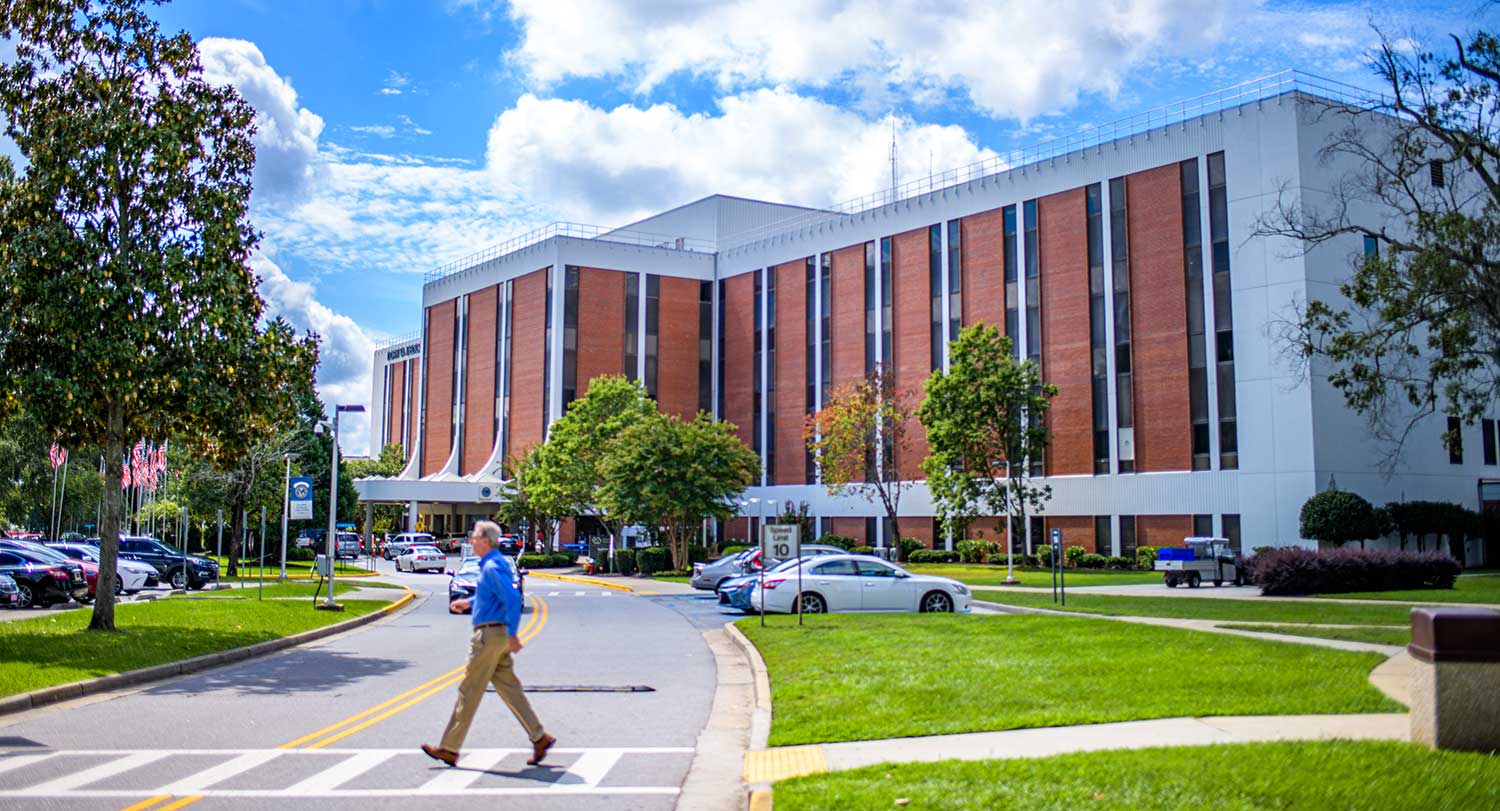
The Veterans Health Administration is the largest health care system in the country, providing care to more than 9 million military veterans at more than 1,300 health care facilities. At the College of Pharmacy, that translates into valuable learning and research opportunities.
Fourth-year pharmacy students can participate in rotations at VA clinics, while researchers can access the VA's extensive database of medical records. Additionally, a number of pharmacy alumni are, or have been, employed as VA pharmacists.
“The Veterans Affairs Administration has had a commitment to teaching and giving back across all the health professions. They have been a valued and invaluable partner to our program over the years, providing innovative inpatient and outpatient practice opportunities for pharmacists and the pharmacy students they supervise,” says Jennifer Baker, ‘02, the director of Experiential Programs and a clinical associate professor in the USC College of Pharmacy.
Baker says the federal health care system has long taken steps to involve the profession of pharmacy into the practice of health care. When student pharmacists are in their final year completing their rotations as part of their clinical training, some spend time in VA clinics around the state.
“Of course, in all these clinical experiences the decisions are the responsibility of the licensed practitioner, but the (COP students) are making recommendations and looking at patient information and interacting with patients to provide recommendations to improve the lives of patients,” Baker says. “In the case of the VA, with the veteran population, most of our experiences currently within South Carolina are in the clinics. The VA systems are huge and have clinics that are rural or spread out all over, and that’s where we see a lot of our activity taking place.”
For Scott Sutton, ‘98, a professor and chair of the College of Pharmacy’s Department of Clinical Pharmacy and Outcomes Sciences, access to VA medical records has been the key tool in his research.
Sutton is affiliated with the Dorn Research Institute, an independent nonprofit established to support the research and educational activities at the Columbia VA Health Care System. Because of that connection, he is able to tap into the VA Informatics and Computing Infrastructure (VINCI) – a collection of the medical records of all veterans.
“This is one of the most amazing platforms that I’m aware of,” Sutton says. “I don’t know the patients’ names, so the data is at the de-identified level, but for any veteran that is utilizing their system we can see what medications they received and we can follow and monitor the outcomes of those.”
Sutton says most data sets available for medical records are localized, but because the VA is a national system with such a large number of patients, and because of the care taken in collecting medical records, it is a world-class, extremely powerful tool for research.
Sutton and his fellow COP researchers, Joe Magagnoli and Tammy Cummings, partner with pharmaceutical companies to understand utilization of drugs or how patients
with a certain disease are being treated.
For example, if a drug has been shown to be efficacious in a clinical trial, that
doesn’t mean the same outcomes will occur once the drug is being used on general patients.
Sutton and his team partner with companies to help understand the true effectiveness
of their drugs in the real world.
Their research group also works on drug repurposing — understanding how medications that are used for certain diseases can be effective in the management of other diseases.
“Instead of being in a lab trying to identify a drug from ground zero, we’re taking drugs that are already on the market being used for a certain disease state, but they have other activities that nobody knew at the time. And we are able to find those,” he says. “That’s really been where our most innovative use of this data set and relationship with the VA has come.”
Partnering with researchers at USC and Dr. Jayakrishna Ambati at the University of Virginia School of Medicine, the group has looked at a medication used to manage HIV that has also been shown to provide benefits in the treatment of macular degeneration.
Sutton, who has been working with the VA data for about 20 years and has spent a total of 25 years at USC, says this is just one example of the work College of Pharmacy researchers have done, and it demonstrates an innovative way to use data to understand or identify new targets and new drugs.
“Without the relationship with the VA, this powerful data set can’t be captured; it can't be utilized for us at the university,” he says. “For me and my team, without the Dorn Research Institute, there’s no way for us to access this.”
And as good collaborations often go, the Columbia VA sees the value of the relationship from a different perspective.
“We are grateful for the veteran-focused work Dr. Sutton and his team conducts and their commitment to improving veteran health,” says Dr. Christopher Wood, executive director of the Dorn Research Institute. “His team’s work leverages the largest integrated health care system in the country and has the potential to benefit a multitude of health conditions that impact veterans as well as non-veterans.”